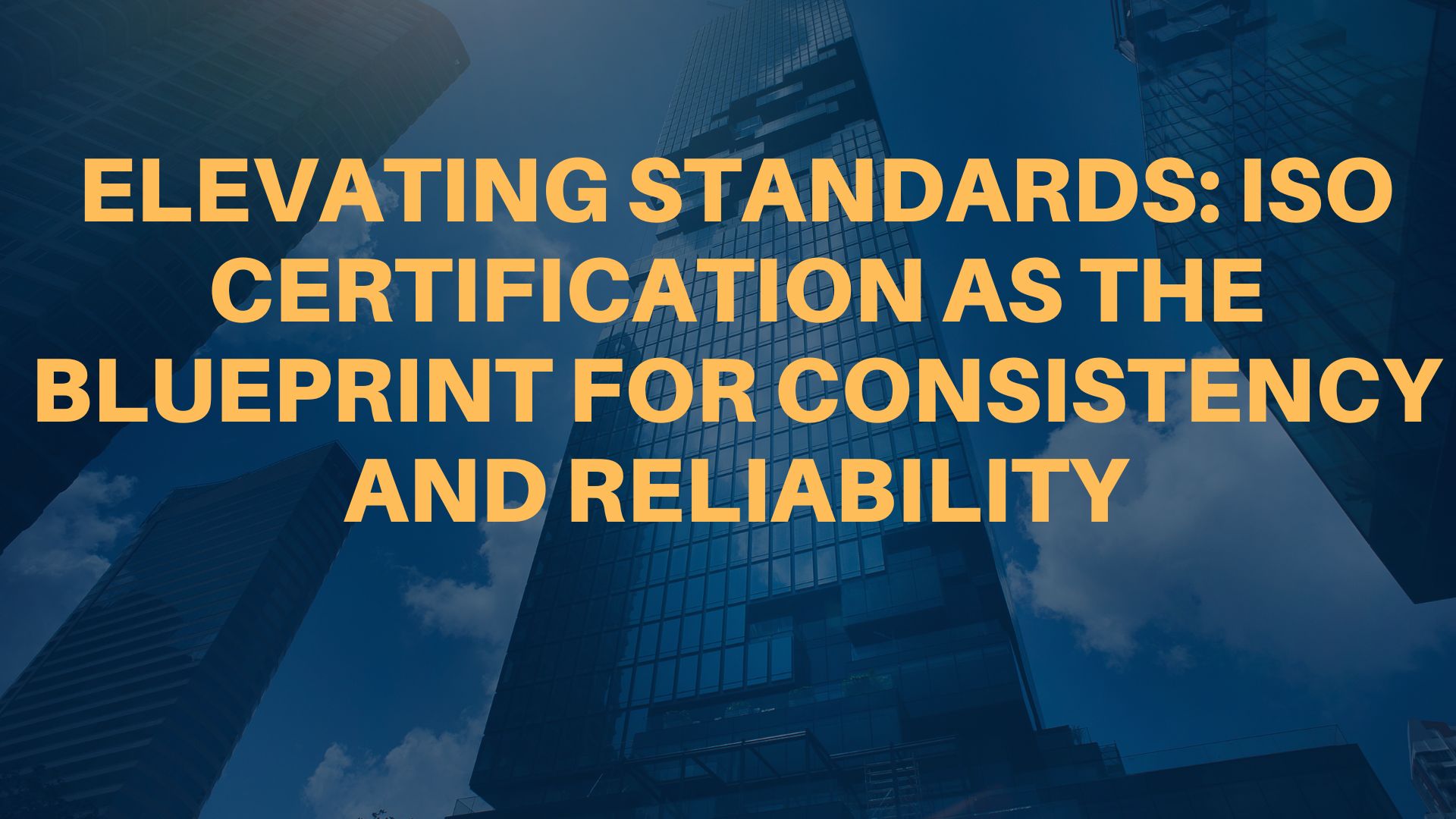
Introduction:
In a world where businesses strive to deliver quality products and services while maintaining consistency and reliability, the International Organization for Standardization (ISO) plays a pivotal role. ISO certifications serve as a blueprint for organizations to achieve excellence by adhering to internationally recognized standards. These certifications not only enhance operational efficiency but also bolster trust among consumers, suppliers, and stakeholders. This comprehensive guide delves into the significance of ISO certification, its benefits, the certification process, and its impact on businesses across diverse sectors.
Understanding ISO Certification:
ISO is an independent, non-governmental international organization that develops and publishes standards to ensure the quality, safety, and efficiency of products, services, and systems. ISO certifications validate that an organization conforms to these established standards, which are designed to streamline processes, minimize errors, and enhance overall performance.
Benefits of ISO Certification:
Enhanced Credibility and Trust:
Acquiring an ISO certification demonstrates a commitment to meeting global benchmarks for quality, safety, and reliability. It instills confidence among customers, partners, and stakeholders, establishing credibility for the organization and its offerings.
Improved Operational Efficiency:
Implementing ISO standards leads to streamlined processes, reducing inefficiencies and errors. This enhances productivity, reduces waste, and ultimately lowers operational costs.
Expanded Market Access:
ISO certification opens doors to new markets, both domestically and internationally. Many tenders and contracts require ISO certification as a prerequisite, providing a competitive edge and facilitating market expansion.
Better Risk Management:
Compliance with ISO standards involves robust risk assessment and mitigation strategies. This proactive approach minimizes potential risks, ensuring continuity and resilience in the face of challenges.
Customer Satisfaction:
Adherence to ISO standards often translates to higher customer satisfaction. Consistency in quality and service delivery fosters loyalty and positive word-of-mouth recommendations.
ISO Certification Process:
The journey towards ISO certification involves several key steps:
Gap Analysis:
Assess the existing processes against ISO standards to identify areas that require improvement or modification.
Implementation:
Develop and implement necessary changes in processes, documentation, and systems to meet ISO standards effectively.
Internal Audit:
Conduct internal audits to ensure compliance and readiness for the certification process.
Certification Audit:
Engage an accredited certification body to conduct an audit verifying compliance with ISO standards.
Certification:
Upon successful completion of the audit, the organization receives the ISO certification, signifying conformity to the specific standard.
Impact on Different Industries:
ISO certification has far-reaching implications across diverse industries:
- Manufacturing: Ensures quality control, safety measures, and efficient production processes.
- Healthcare: Improves patient care, safety protocols, and data security.
- Information Technology: Enhances cybersecurity, data management, and software development processes.
- Food Industry: Ensures food safety, traceability, and compliance with quality standards.
Note: you Can Apply for ISO 45001-2018 Certification
Conclusion:
ISO certification serves as a beacon guiding organizations towards excellence, consistency, and reliability. It encapsulates a commitment to meeting global standards, fostering trust among stakeholders, and enhancing overall business performance. Embracing ISO standards isn’t just a choice; it’s a strategic decision paving the way for sustained growth, competitive advantage, and customer satisfaction in today’s dynamic and demanding marketplace.







